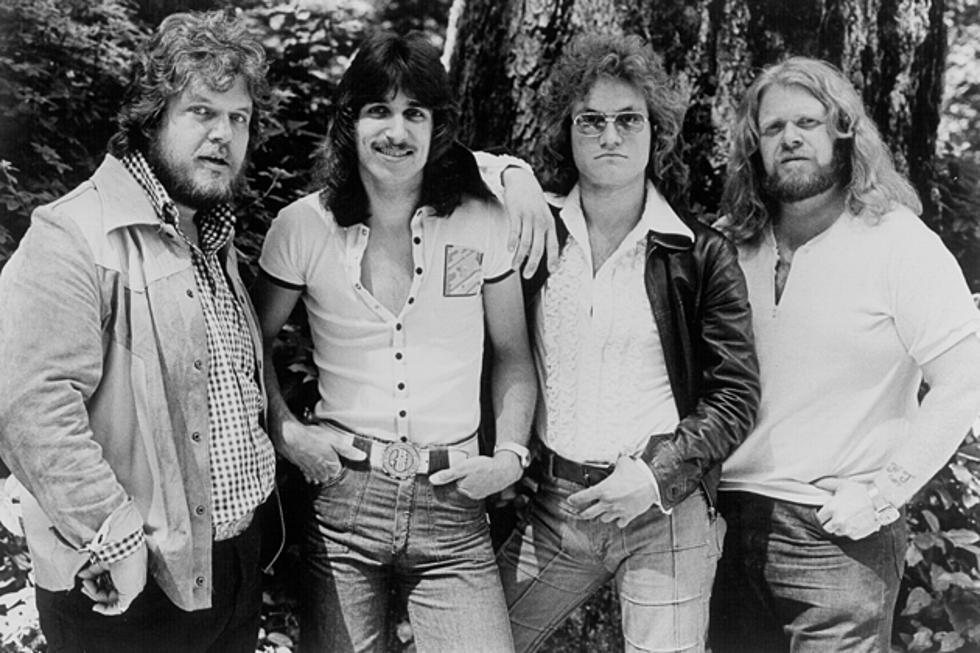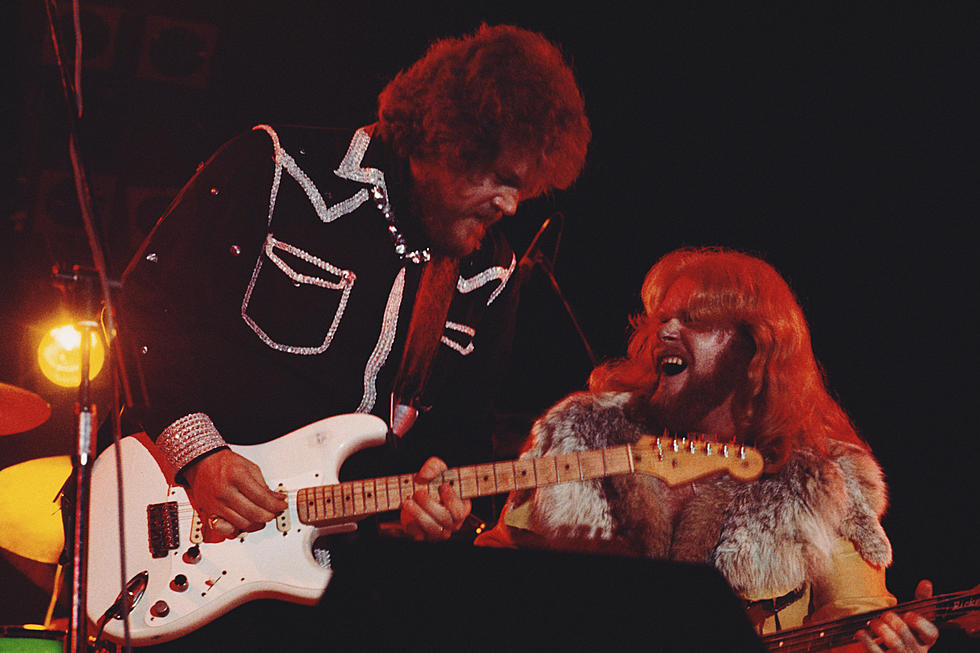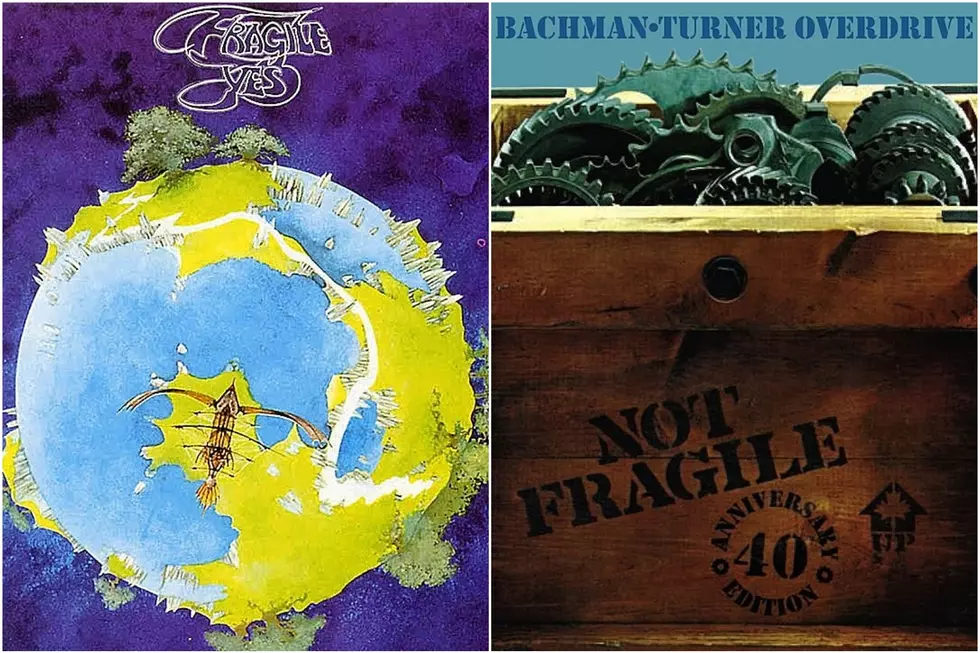
Why Bachman-Turner Overdrive’s ‘Four Wheel Drive’ Could’ve Waited
Bachman-Turner Overdrive put a lot of hard work — and countless touring miles — into making it big, and when they broke through, they didn't slow down.
Quite the opposite, in fact: They returned with Four Wheel Drive in May 1975, less than a year after the band's third album, the huge hit Not Fragile. It was the fourth release in a torrid stretch that saw five BTO LPs hit stores in a two-year span.
From a certain point of view, BTO's steady production made sense: As Randy Bachman explained during an interview with the NME, the band had a very specific — and purposely very basic — songwriting approach. "When I started this band, we all sat down and listened to what we considered to be the really great rock bands – the Who, the Stones, Free – and tried to work out what made those records great. We discovered that they all had good hook lines, and that most of them started out with guitar riffs, so we started writing songs like that."
The group's well-known work ethic — partly the result of Bachman forbidding extracurricular shenanigans — also had a lot to do with its ability to consistently deliver enough albums to satisfy the label's grueling schedule. And there were no exceptions: Guitarist Tim Bachman, Randy's brother, found himself on the outs after Bachman-Turner Overdrive II, unwilling or unable to abide by the rules. As bassist Fred Turner saw it, however, the band's clean living was just part of an overall plan to avoid the sort of spectacular flameouts rock was already known for.
"My idea of a group is no stars, no egos, just regular guys. I've been doing it too long to go through the superstar trip. BTO isn't in it to make a great, big wide, gaping hole in the business," insisted Turner during a 1975 interview with Creem. "With us the most important thing is our future and our families. I want to make music and I want to make money so my family can be comfortable."
Still, even with their noses to the grindstone, the members of Bachman-Turner Overdrive found it difficult to keep up with label and market demands. And as Randy Bachman told UCR in 2014, their frenetic pace also made it hard to keep any real perspective on the music.
"When you hit No. 1, and we did with the Not Fragile album and single, there’s nowhere else to go but No. 2 and then No. 3 and then downward," he pointed out. "We hit No. 1 and there was quite a big pressure to try to stay up there — and you can’t. A lot of guys self-destruct doing that. Because you don’t really know what got you there in the first place, and it’s certainly not partying, drugs and alcohol, but a lot of guys go to that, because they’re frustrated and they don’t know what they did. You’ve just got to say, 'Well, we were lucky and let’s go hang out until we get lucky again.'"
Four Wheel Drive didn't duplicate its predecessor's chart-topping success, but it came close, hitting No. 5, while the record's biggest hit single, "Hey You," peaked at No. 21. But sales and airplay aside, Bachman understood BTO were trying to hold onto their success instead of really steering it. "Four Wheel Drive was kind of the realization of that and realizing that we were starting to repeat ourselves," he argued. "Because we don’t know what we did right, so we’re just repeating ourselves to see if it works or it doesn’t."
Listen to BTO Perform 'Hey You'
Record labels are great when it comes to achieving market saturation, but they aren't always so astute about pulling back the reins before fans feel like they've had too much of a good thing. By the time Not Fragile arrived, its predecessors were still lingering on the charts — and even if Four Wheel Drive delivered another effective rejoinder to the more intricate and ambitious efforts of popular prog bands like Yes (whose Fragile album inspired Not Fragile's tongue-in-cheek title), the law of diminishing returns was bound to come into play eventually.
"In that first 18 months, we had three albums out. Not Fragile was No. 1, BTO II was No. 18 and BTO 1 was No. 49. We had three albums in the Billboard Top 100 albums. We had three in the top 50," Bachman recalled during his conversation with UCR. "'You Ain’t Seen Nothin’ Yet' was a No. 1 single and 'Takin’ Care of Business' was still at 78. We had singles and albums all over the charts, and the record label and your management starts going crazy. You’re on the road and you don’t really realize it."
If they couldn't feel the flush of their success, they could definitely feel the strain of writing and recording new material while staying on top of a punishing touring schedule that — while it definitely helped BTO gain a toehold in a number of regional markets — was always bound to lead to burnout.
"It’s real manual labor after a while," Bachman admitted to UCR. "Somebody’s making you do it. It’s almost like slave labor. You’re enslaved to your label, and you’re so worried that everybody who said you’re not going to make any money at this, you’re going to die broke...this is your chance to make your money...you go and make your money. You get pushed and pushed and pushed and suddenly somebody dies or kills themselves...they can’t handle the pressure, or you’re overloaded or you break up."
That overload point loomed with Four Wheel Drive, which Bachman referred to as "the beginning of the ending." Bachman-Turner Overdrive were still contractually obligated to deliver more product, however, and their fifth album, Head On, arrived in December of 1975 — at which point the writing on the wall was starting to become clearer to all concerned. Although it gave the band another Top 40 hit, peaking at No. 23, and spun off the successful single "Take It Like a Man," the BTO machine was obviously running out of steam. After 1977's Freeways, Bachman himself was out of the lineup.
Head On was a little bit watered down and then Freeways was the last album and it was time to move on," he argued. "Disco was coming in and all of the bands were kind of petering out. Peter Frampton, ZZ Top, the Doobie Brothers, all of us, we were all tired and we had all been on the road since 1972 literally doing 300 dates a year."
The members of this era of BTO have played together and apart at various times over the years, with Bachman and Turner reuniting most recently for 2010's aptly titled Bachman & Turner LP, but Bachman has also maintained a steady solo career that took a new turn in 2015 with Heavy Blues, the debut offering from his power trio Bachman — a record that found him wanting to push "past my limit, pull me onto new paths and direct me down new roads."
See BTO Among the Top 200 '70s Rock Songs
More From Ultimate Classic Rock









